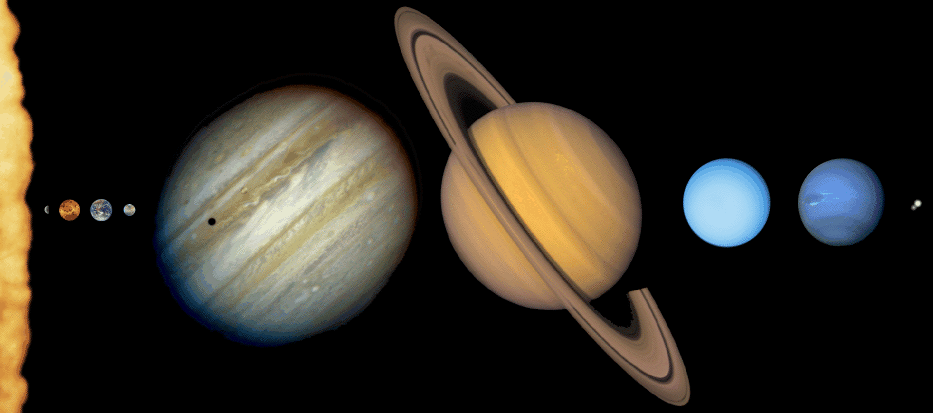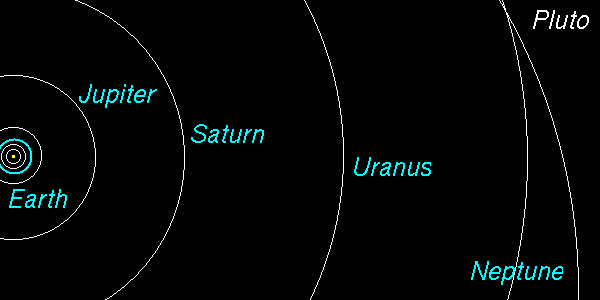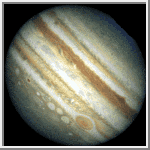The Jovian Planets:
Jupiter, Saturn, Uranus, Neptune
These planets are quite different from the terrestial planets, Mercury, Venus,
Earth, and Mars.

They are big:
- Jupiter: 11 RE
- Saturn: 9 RE
- Uranus: 4 RE
- Neptune: 4 RE
Some of them rotate fast:
- Jupiter: 10 hours
- Saturn: 10 hours
- Uranus: 17 hours; axis tilted, approximately in plane of orbit.
- Neptune: 16 hours
They are far away:
- Jupiter: 5 AU
- Saturn: 10 AU
- Uranus: 19 AU
- Neptune: 30 AU

Jupiter
 Jupiter is far away:
It is big:
Jupiter is far away:
It is big:
- radius ~ 11 RE
- mass ~ 320 ME
What does this mean about its density?
It rotates fast:
- A day on Jupiter is 10 hours.
Jupiter is cold at its cloud tops:
Low temperature at start of solar system would allow
- ices to form
- water, H2O
- methane, CH4
- ammonia, NH3
- carbon dioxide, CO2
- gasses to be attracted by gravity to a central core planet more easily.
- This fits with the low density.
- Available gasses are H and He.
- And of course "rock" is also available.
We should recall something about the
physics of gases.
ASTR 121 Home
Davison E. Soper, Institute of Theoretical Science,
University of Oregon, Eugene OR 97403 USA
soper@bovine.uoregon.edu



